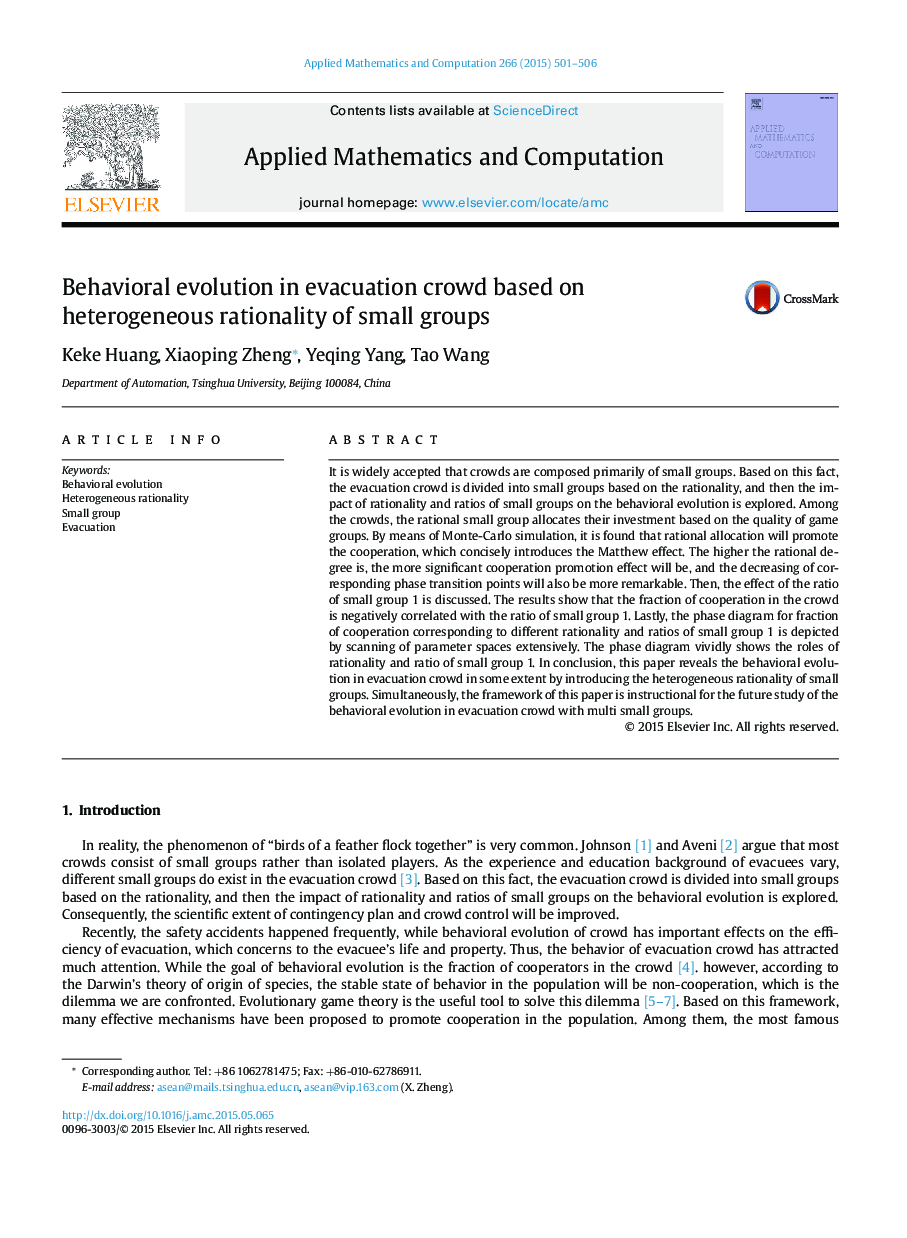| کد مقاله | کد نشریه | سال انتشار | مقاله انگلیسی | نسخه تمام متن |
|---|---|---|---|---|
| 4626541 | 1631788 | 2015 | 6 صفحه PDF | دانلود رایگان |
It is widely accepted that crowds are composed primarily of small groups. Based on this fact, the evacuation crowd is divided into small groups based on the rationality, and then the impact of rationality and ratios of small groups on the behavioral evolution is explored. Among the crowds, the rational small group allocates their investment based on the quality of game groups. By means of Monte-Carlo simulation, it is found that rational allocation will promote the cooperation, which concisely introduces the Matthew effect. The higher the rational degree is, the more significant cooperation promotion effect will be, and the decreasing of corresponding phase transition points will also be more remarkable. Then, the effect of the ratio of small group 1 is discussed. The results show that the fraction of cooperation in the crowd is negatively correlated with the ratio of small group 1. Lastly, the phase diagram for fraction of cooperation corresponding to different rationality and ratios of small group 1 is depicted by scanning of parameter spaces extensively. The phase diagram vividly shows the roles of rationality and ratio of small group 1. In conclusion, this paper reveals the behavioral evolution in evacuation crowd in some extent by introducing the heterogeneous rationality of small groups. Simultaneously, the framework of this paper is instructional for the future study of the behavioral evolution in evacuation crowd with multi small groups.
Journal: Applied Mathematics and Computation - Volume 266, 1 September 2015, Pages 501–506
